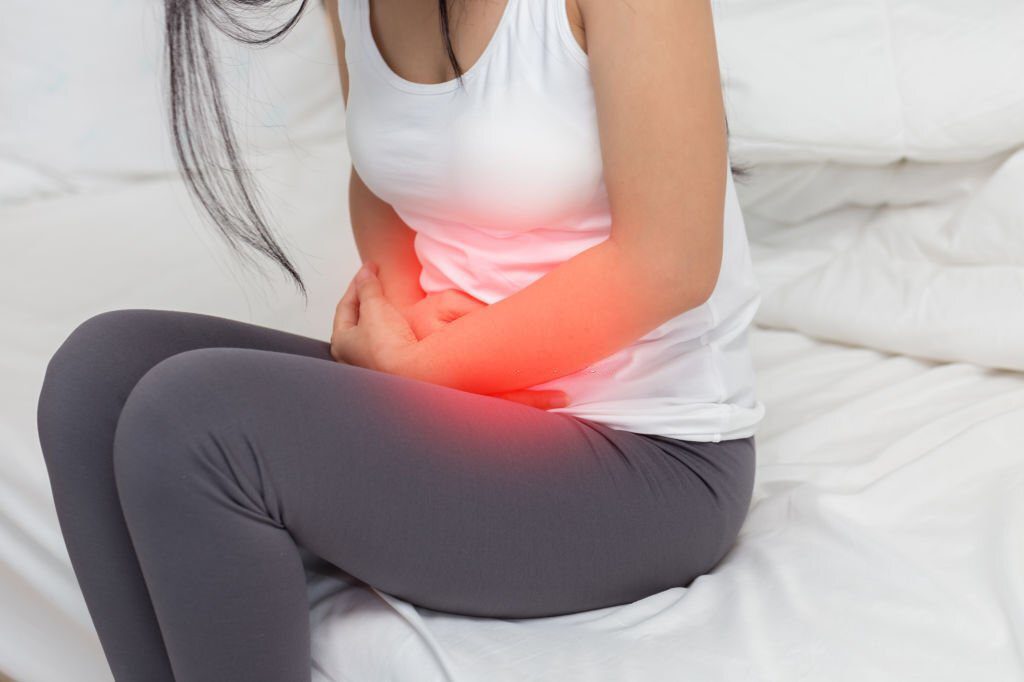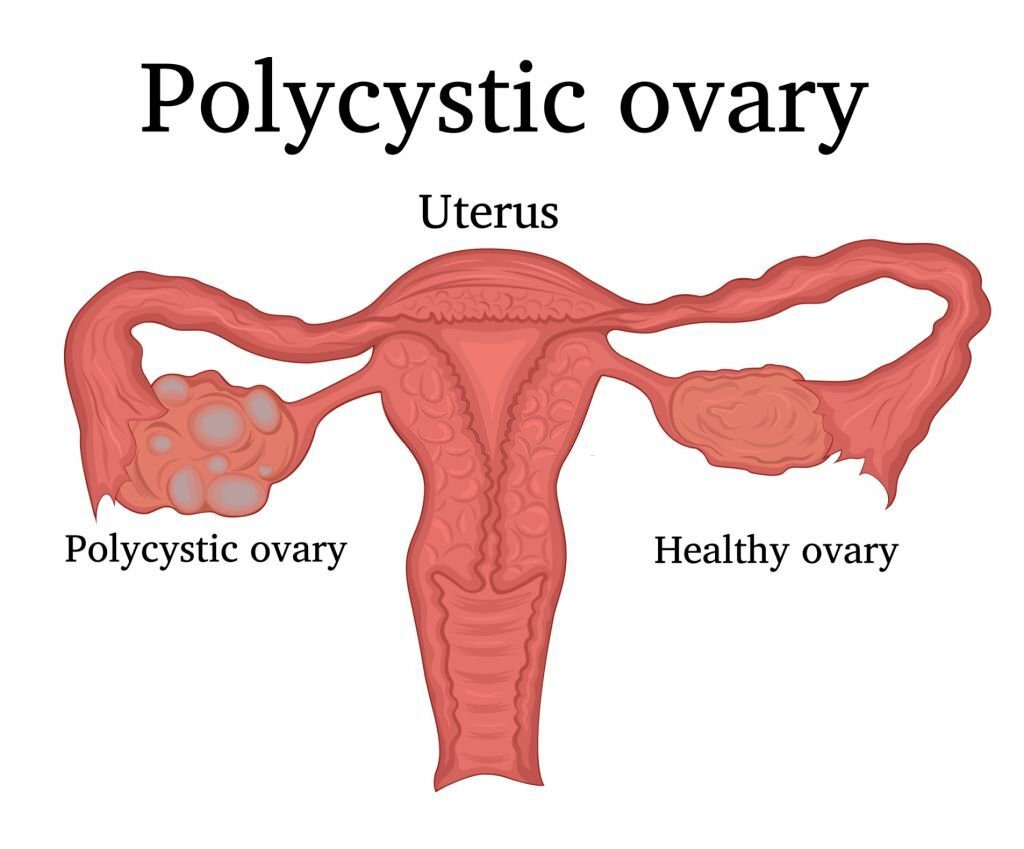Hey! Don’t be confused about the diagnosis of PCOS 101. Numerous ladies suffer from polycystic ovary syndrome worldwide without understanding it. It has become a common disease affecting 5 – 20% of women. Though it is a common syndrome, it remains undiagnosed and unmanaged. If a doctor diagnosed you with PCOS 101, the first important thing to know is that you are not alone.
Polycystic ovary syndrome is manageable when diagnosed. Several lifestyle changes can make its treatment easier. Currently, researchers are trying to find out the causes of PCOS 101 to combat it.
If you want to learn more about polycystic ovary syndrome, continue reading!
What Is PCOS 101?
Generally, it is a condition of hormonal imbalance that affects up to one in ten women. PCOS hormonal change leads to irregular menstruation and a higher level of androgens in the body. Moreover, it results in a cyst formation.
PCOS can cause symptoms including excess facial and body hair, acne, and mood changes. It can also make it difficult to become pregnant, and may significantly harm a person’s overall health; if left untreated.
There are several other symptoms of PCOS 101 that impact a person’s overall health and fitness. It is not only a gynecological concern but a metabolic syndrome.
Also, Read – Weight Loss & Sugar Level
Causes of PCOS 101
People search for the possible causes of polycystic ovary syndrome. Healthcare professionals relate polycystic ovary syndrome with:
- Chronic inflammation
- Adrenal fatigue
- Insulin resistance
- Thyroid condition
All these causes lead to an increase in male hormones – androgen.
PCOS 101 Symptoms

Typically, it is a heterogeneous syndrome, and its symptoms vary from patient to patient. The symptoms you experience may be different from other women with PCOS 101. For example, some women have excess body hairs without irregular menstruation. Some others may experience trouble conceiving due to elevated male hormones.
However, some common symptoms of PCOS 101 are:
- Irregular menstruation
- Excess hair growth
- Hair thinning
- Weight gain
- Inability to lose weight
- Severe acne
- Infrequent periods
- Oily skin
- Dark patches on the skin
- Insulin resistance
- Depression
- Difficulty getting pregnant
PCOS 101 Medication Options
FDA – Food and Drug Administration has not approved any medications to treat Polycystic ovary syndrome. However, some off-label medications can tackle the condition. You can consult these medications with your healthcare professionals.
One of the mainstream treatment options for insulin resistance and diabetes is Glucophage. Some physicians recommend Glucophage with Metformin for treatment. In general, Metformin is a safe and good medication as it does not cause any harm. However, it is not a beneficial option to lower male hormones for excess hair growth.
Another effective medication to limit the production of male hormones is Aldactone. In general, it is blood pressure, hypertension, and fluid retention medication.
If a woman has excessive hair growth due to PCOS 101, Aldactone may prove beneficial. However, it is not safe for pregnant women as it can cross the placenta. Therefore, it is essential to consult with your healthcare professional before taking any medication. The doctor may prescribe spironolactone in combination with birth control pills to minimize the symptoms of PCOS.
Also, Read – Maintain Weight Loss
Birth control pills and estrogen medications are prescribed for those women with PCOS not looking to get pregnant. It may prove a great option if the problem is irregular periods. Irregular periods lead to endometrial hyperplasia in which there is no exposure of estrogen and progesterone to the uterus lining. The extra thick uterine walls may lead a woman to uterine cancer.
“A woman must shed uterine linning four times a year”
Dunaif
Therefore, some physicians prescribe birth control pills for regular periods and control male hormone production. Generally, these are safe and beneficial without the risk of colon and ovarian cancer.
One of the best options for good fertility of PCOS 101 women is Clomid or Femara. Many doctors prescribe Clomid – an oral medication to induce ovulation. Additionally, injectable gonadotropin may also lead to in vitro fertilization.
It might be overwhelming for a woman to choose the best option. Therefore, it is crucial to discuss your PCOS 101 with a healthcare expert. For example, a woman cannot treat male hormone problems and infertility simultaneously.
Other Treatment Options for PCOS 101

Once you have been diagnosed, your healthcare provider and you will likely discuss the treatment options. There currently is no cure for PCOS. Medications, lifestyle interventions, and other therapies help in managing symptoms. Therapies are tailored to your symptoms and needs, particularly if you desire to become pregnant or not. Discuss with your doctor and PCOS care team to find the treatment approach that works best for you.
Some of the options to discuss are:
Lifestyle Modifications
One of the initial PCOS treatments is a lifestyle change that can lead to ovulation and metabolic dysfunction.
Some effective lifestyle changes are:
- Reduction of weight
- Reduced androgen levels
- Promote normal menstruation
- Improve fertility
- Take Vitamin D
- Take anti-inflammatory diet
- Lower stress
You can modify your diet plan to lose weight. A Diet plan in combination with intense exercise can result in improved insulin reduction and reduced cardiovascular risk. All these are the best options to treat PCOS without medication.
Adopt these holistic & practical steps with your doctor’s help!
Medications for PCOS
Some managed medications for PCOS that your doctor may prescribe are:
- Hormonal contraception
- Infertility medications
- Anti-diabetic medications
- Anti-androgen medications
Work closely with your doctor and PCOS care team to find out right medication.
Managing Physical Symptoms
For many of the physical symptoms, cosmetic measures are also used to manage them:
- Hirsutism (Excess Hair Growth) – shaving, depilatories, plucking/waxing, laser treatment
- Acne – retinoids, oral and topical antibiotic
- Baldness – solutions or shampoos containing agents such as minoxidil
- Acanthosis nigricans – lightening agents, dermabrasion, laser therapy
Check-in with your dermatologist on what would work best for you.
The Bottom Line
Typically, the diagnosis of PCOS 101 is distressing. Though there is no cure for PCOS, you can manage its symptoms with lifestyle changes and some medications.
Find a trusty and expert healthcare professional to diagnose and deal with the symptoms of polycystic ovary syndrome. After diagnosis, trust your healthcare practitioner and focus on the treatment.





